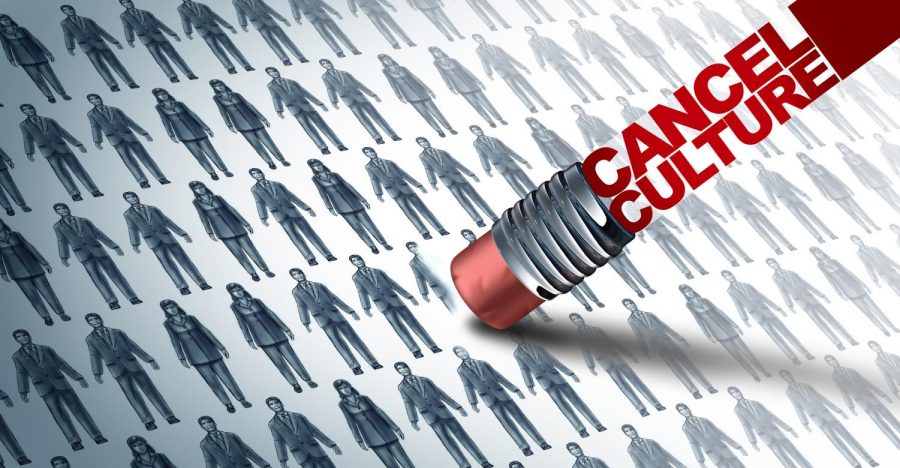Cancel culture has gone too far
Cancel culture has become a cycle of celebrities receiving vicious attacks online after fans or other netizens disagree with them, even if that celebrity has realized their mistakes and tried to change.
November 18, 2021
Cancel culture is a modern form of boycotting and exclusion and often attempts to remove celebrities from their platforms. At best, it smudges reputations. At worst, it ruins careers.
But cancel culture often takes the past too seriously.
Sometimes, this is warranted. In the case of Shane Dawson, a YouTube star with a long history of blackface, negative stereotypes and off-color jokes about pedophilia, cancel culture halted his career, with him only recently starting to make a comeback.
Given Dawson’s half-hearted apologies and continued weird (and criminal) behavior, cancel culture served him right.
Other times though, cancel culture fails to take growth into account.
Take the case of Matt Damon, for example. Earlier this year, Damon was canceled for “retiring” the use of the f-slur and having his daughters explain why that language is damaging. The issue subsequently blew up on Twitter, with users chastising him for not knowing that the f-slur is harmful.
And I don’t disagree with their initial reaction. It’s 2021. Damon should have known that the f-slur is homophobic.
This isn’t the first time Damon has been “canceled” either.
In 2017, Damon made some unsavory remarks about the #MeToo movement and Louis C.K., which was followed by torrential backlash and an eventual apology.
While apologizing doesn’t really show growth, recognizing your faults and changing your behavior does.
After the incident in 2017, Damon’s apology was paired with remarks about “needing to take a backseat and listen to women. His 2021 cancellation was followed by a similar sentiment of needing to listen.
Since then, Damon has at least acknowledged that he understands the severity of saying the f-slur and reflected on his past comments about the #MeToo movement, which completely changed his perspective.
As a woman, I especially don’t agree with the comments that Damon made, and I agree that the backlash he received was justified.
Still, there is something to be said for his acknowledgment of his mistakes, as well as for the growth he’s shown.
Canceling a celebrity can definitely be warranted, especially when they’re actively harming others. However, cancel culture has become a cycle of celebrities receiving vicious attacks online after fans or other netizens disagree with them, even if that celebrity has realized their mistakes and tried to change.
Cancel culture isn’t just near-sighted; it is fiercely focused on the past without ever considering the future, and that’s not fair.














